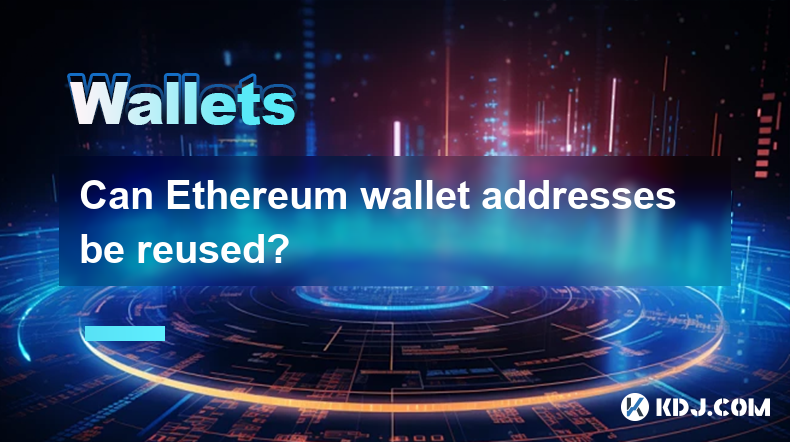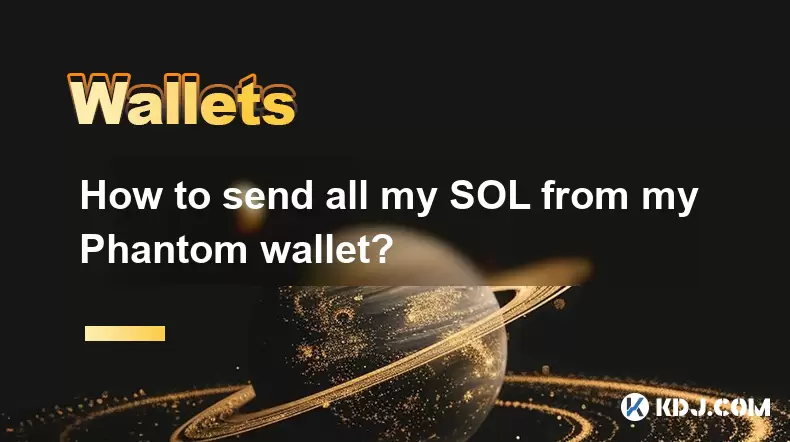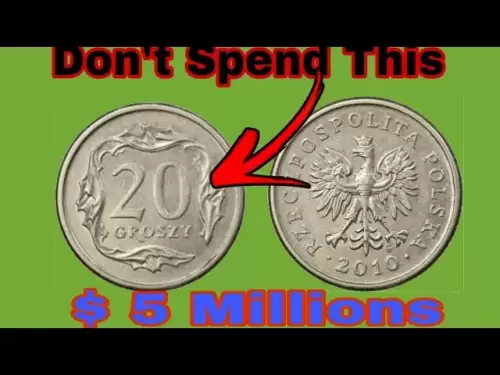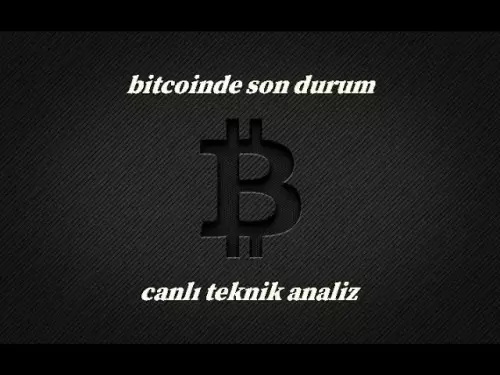-
 Bitcoin
Bitcoin $108,562.4295
0.46% -
 Ethereum
Ethereum $2,533.9553
1.52% -
 Tether USDt
Tether USDt $1.0002
-0.01% -
 XRP
XRP $2.2542
2.23% -
 BNB
BNB $662.4567
1.48% -
 Solana
Solana $151.4114
3.48% -
 USDC
USDC $0.9999
0.00% -
 TRON
TRON $0.2860
0.91% -
 Dogecoin
Dogecoin $0.1685
3.72% -
 Cardano
Cardano $0.5809
1.63% -
 Hyperliquid
Hyperliquid $39.2916
1.85% -
 Sui
Sui $2.8874
0.85% -
 Bitcoin Cash
Bitcoin Cash $496.5801
2.72% -
 Chainlink
Chainlink $13.3582
2.48% -
 UNUS SED LEO
UNUS SED LEO $9.0279
0.07% -
 Avalanche
Avalanche $18.0773
2.30% -
 Stellar
Stellar $0.2426
3.05% -
 Toncoin
Toncoin $2.9086
6.01% -
 Shiba Inu
Shiba Inu $0.0...01170
2.97% -
 Hedera
Hedera $0.1587
3.47% -
 Litecoin
Litecoin $87.4596
1.13% -
 Monero
Monero $317.0425
0.73% -
 Polkadot
Polkadot $3.3778
1.90% -
 Dai
Dai $0.9999
-0.01% -
 Ethena USDe
Ethena USDe $1.0001
-0.01% -
 Bitget Token
Bitget Token $4.4095
0.63% -
 Uniswap
Uniswap $7.3593
6.80% -
 Pepe
Pepe $0.0...09910
3.64% -
 Aave
Aave $274.7388
2.68% -
 Pi
Pi $0.4607
0.48%
Can Ethereum wallet addresses be reused?
Reusing Ethereum addresses is technically allowed but compromises privacy; each transaction is publicly recorded on the blockchain, linking them to the address and potentially revealing spending habits. Using a new address per transaction enhances anonymity.
Mar 22, 2025 at 09:56 pm

Can Ethereum Wallet Addresses Be Reused?
The question of whether Ethereum wallet addresses can be reused is a common one among users new to the cryptocurrency space. The short answer is: yes, Ethereum wallet addresses can be reused. However, this doesn't mean it's always the best practice. Security and privacy considerations should guide your decision. Understanding the implications of address reuse is crucial for maintaining the security of your Ethereum holdings.
Reusing an Ethereum address is perfectly valid from a technical standpoint. The Ethereum network doesn't prohibit it. Your private key, which grants you access to the funds associated with the address, remains the same regardless of how many times the address is used. Transactions are linked to the address, not the private key directly.
However, reusing an address can raise privacy concerns. Each transaction made to an address is publicly recorded on the Ethereum blockchain. Reusing an address allows anyone to easily track all transactions associated with that specific address, potentially revealing information about your spending habits and the total amount of ETH you hold. This is a significant privacy risk.
This linkage of transactions to a single address could potentially lead to unwanted inferences about your activities. For instance, if you regularly use the same address to receive payments from a specific source, your association with that source becomes readily apparent. This public record can compromise your anonymity.
To mitigate this privacy risk, many users opt for using a new address for each transaction. This practice, while more cumbersome, significantly improves your privacy. This approach makes it far more difficult to track your spending habits or link your different transactions together.
Generating a new address is usually a straightforward process within most Ethereum wallets. The exact steps vary depending on the specific wallet software you are using. Generally, you will find an option to create or receive a new address within the wallet's interface.
- Open your Ethereum wallet.
- Navigate to the "Receive" or "Addresses" section.
- Look for an option to generate a new address.
- Confirm the generation of the new address.
- This new address will be linked to your existing private key.
Using a new address for each transaction offers a stronger layer of privacy. However, it's important to remember to always store your private keys securely. Losing your private key means losing access to all the funds associated with the addresses generated from it. Never share your private keys with anyone.
While reusing addresses is technically possible and doesn't invalidate transactions, the privacy implications are substantial. The blockchain's public nature makes every transaction visible, and reusing addresses makes it easier to connect those transactions, potentially exposing your financial activities.
The choice between reusing addresses or generating new ones ultimately depends on your individual privacy preferences and risk tolerance. For users prioritizing utmost privacy, generating a new address for each transaction is strongly recommended. However, if privacy is not a primary concern, reusing an address is technically feasible.
The potential for linking transactions through address reuse remains a significant factor. This linkage could lead to deanonymization, particularly for high-value or frequent transactions. The more transactions associated with a single address, the more data points are available for analysis and potential identification.
Managing multiple addresses can be more challenging, but various wallet applications offer features to simplify this process. Some wallets automate address generation for incoming transactions, streamlining the process and enhancing privacy. Understanding your wallet's features is key to managing your addresses effectively.
Furthermore, the potential for dust attacks, although unlikely with careful management, is another factor to consider. A dust attack involves sending a tiny amount of cryptocurrency to an address to identify it. This is more of a concern with long-term reuse of addresses.
Remember, security and privacy are paramount in the cryptocurrency world. Carefully consider your needs and choose the method that best aligns with your risk tolerance and privacy goals. Proper key management remains crucial regardless of your address reuse strategy.
Frequently Asked Questions:
Q: Is it illegal to reuse Ethereum addresses?
A: No, reusing Ethereum addresses is not illegal. It's a technically permissible action, although not necessarily the most privacy-conscious practice.
Q: Can I reuse an address after receiving funds?
A: Yes, you can reuse an address after receiving funds, but it's advisable to use a new address for each incoming transaction to enhance privacy.
Q: Does reusing addresses affect transaction fees?
A: Reusing addresses doesn't directly affect transaction fees. Transaction fees are primarily determined by network congestion and the amount of gas used.
Q: How many times can I reuse an Ethereum address?
A: Technically, you can reuse an Ethereum address an unlimited number of times. However, it's generally recommended to use new addresses for each transaction to maximize privacy.
Q: What happens if I lose the private key to a reused address?
A: If you lose the private key, you lose access to all funds associated with all addresses generated from that key, regardless of how many times they have been used.
Disclaimer:info@kdj.com
The information provided is not trading advice. kdj.com does not assume any responsibility for any investments made based on the information provided in this article. Cryptocurrencies are highly volatile and it is highly recommended that you invest with caution after thorough research!
If you believe that the content used on this website infringes your copyright, please contact us immediately (info@kdj.com) and we will delete it promptly.
- Drake, Bitcoin, and Mainstream Music: A New Era?
- 2025-07-07 12:30:12
- Meme Coins, ROI Potential, 2025 Selection: What's Hot and What's Not?
- 2025-07-07 12:30:12
- Bitcoin, Ethereum, and Dogecoin: Navigating the Crypto Landscape in a Wild Week
- 2025-07-07 12:50:11
- Meme Coin Mania: Explosive Picks and Top Buys in 2025
- 2025-07-07 12:50:11
- Bitcoin, Ethereum, and the Cryptocurrency Market: Riding the Wave of Innovation
- 2025-07-07 12:55:12
- Elon Musk, Bitcoin, and Crypto News: A 2025 Perspective
- 2025-07-07 13:10:12
Related knowledge

How to cancel a pending transaction in Phantom wallet?
Jul 03,2025 at 07:21pm
Understanding Pending Transactions in Phantom WalletA pending transaction in the Phantom wallet occurs when a user initiates a transfer or interaction with the Solana blockchain, but it hasn't yet been confirmed by the network. This can happen due to various reasons such as low transaction fees, network congestion, or incorrect gas settings. It's import...

How to see the estimated value of my tokens in Phantom wallet?
Jul 04,2025 at 12:21am
What is Phantom Wallet?Phantom wallet is one of the most popular cryptocurrency wallets designed for the Solana blockchain. It allows users to store, send, receive, and manage various tokens built on Solana, including SPL tokens and NFTs. The wallet offers a user-friendly interface, making it accessible for both beginners and advanced users in the crypt...

How to lock my Phantom wallet extension?
Jul 03,2025 at 11:14am
What Is the Phantom Wallet and Why Lock It?The Phantom wallet is a popular non-custodial cryptocurrency wallet designed for interacting with the Solana blockchain. Supporting both browser extensions and mobile apps, Phantom allows users to store, send, receive, and stake SOL tokens, as well as interact with decentralized applications (dApps). Securing y...

Does Phantom wallet offer two-factor authentication (2FA)?
Jul 03,2025 at 09:00am
Understanding Phantom Wallet and Its Security FeaturesPhantom wallet is a widely used non-custodial cryptocurrency wallet that supports the Solana blockchain. It allows users to store, send, receive, and interact with decentralized applications (dApps) seamlessly. As security is a top priority for any crypto wallet user, security features like two-facto...

How to send all my SOL from my Phantom wallet?
Jul 06,2025 at 10:00am
Preparing to Send SOL from Your Phantom WalletBefore initiating any transaction, it is crucial to ensure that your Phantom wallet is fully set up and connected to the correct network. Phantom supports multiple networks, but for sending SOL, you must be on the Solana blockchain. Confirm this by checking the network indicator in the top-right corner of th...

What is "rent" on Solana and how does it affect my Phantom wallet?
Jul 02,2025 at 08:35pm
Understanding 'Rent' on SolanaIn the context of Solana, the term 'rent' refers to a storage fee that users pay for maintaining data on the blockchain. Unlike Ethereum, where storage costs are paid once via gas fees during contract deployment, Solana implements a recurring cost model to ensure efficient usage of network resources. This means that any acc...

How to cancel a pending transaction in Phantom wallet?
Jul 03,2025 at 07:21pm
Understanding Pending Transactions in Phantom WalletA pending transaction in the Phantom wallet occurs when a user initiates a transfer or interaction with the Solana blockchain, but it hasn't yet been confirmed by the network. This can happen due to various reasons such as low transaction fees, network congestion, or incorrect gas settings. It's import...

How to see the estimated value of my tokens in Phantom wallet?
Jul 04,2025 at 12:21am
What is Phantom Wallet?Phantom wallet is one of the most popular cryptocurrency wallets designed for the Solana blockchain. It allows users to store, send, receive, and manage various tokens built on Solana, including SPL tokens and NFTs. The wallet offers a user-friendly interface, making it accessible for both beginners and advanced users in the crypt...

How to lock my Phantom wallet extension?
Jul 03,2025 at 11:14am
What Is the Phantom Wallet and Why Lock It?The Phantom wallet is a popular non-custodial cryptocurrency wallet designed for interacting with the Solana blockchain. Supporting both browser extensions and mobile apps, Phantom allows users to store, send, receive, and stake SOL tokens, as well as interact with decentralized applications (dApps). Securing y...

Does Phantom wallet offer two-factor authentication (2FA)?
Jul 03,2025 at 09:00am
Understanding Phantom Wallet and Its Security FeaturesPhantom wallet is a widely used non-custodial cryptocurrency wallet that supports the Solana blockchain. It allows users to store, send, receive, and interact with decentralized applications (dApps) seamlessly. As security is a top priority for any crypto wallet user, security features like two-facto...

How to send all my SOL from my Phantom wallet?
Jul 06,2025 at 10:00am
Preparing to Send SOL from Your Phantom WalletBefore initiating any transaction, it is crucial to ensure that your Phantom wallet is fully set up and connected to the correct network. Phantom supports multiple networks, but for sending SOL, you must be on the Solana blockchain. Confirm this by checking the network indicator in the top-right corner of th...

What is "rent" on Solana and how does it affect my Phantom wallet?
Jul 02,2025 at 08:35pm
Understanding 'Rent' on SolanaIn the context of Solana, the term 'rent' refers to a storage fee that users pay for maintaining data on the blockchain. Unlike Ethereum, where storage costs are paid once via gas fees during contract deployment, Solana implements a recurring cost model to ensure efficient usage of network resources. This means that any acc...
See all articles

























































































